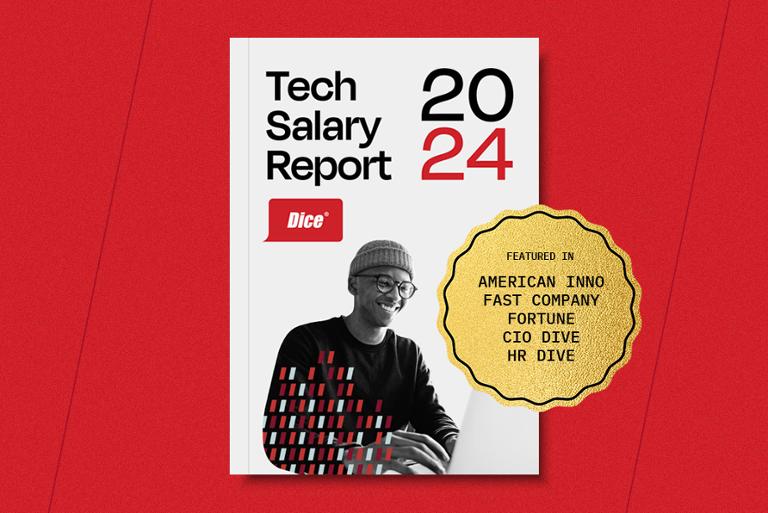Database administrators (DBAs) are the unsung heroes of tech. They keep the backbone of any company or service—i.e., the actual database—running smoothly and available to users and customers. No wonder some studies have named it one of the fastest-growing jobs in America.
But what exactly does a DBA do on a day-to-day basis, and how can you become one? We’ll go through some of the basics in this article, and provide some learning platforms for you to start your journey.
What Exactly Is a Database Administrator?
Every bit of data we access is stored somewhere. The database administrator makes sure to build and maintain access to those databases housing all of our information.
They make sure servers have as much ‘uptime’ as possible, for example, and manage the load for those servers. Depending on the size of the company, a database administrator may manage a few servers with gigabytes of data, or an entire server farm with terabytes of data. In addition to dealing with on-premises infrastructure, they must frequently manage the cloud-based systems that may hold a company’s data.
According to Burning Glass, which collects and analyzes millions of job postings from across the country, employers are looking for database administrators with a unique mix of “hard” skills (i.e., the ability to work with specific apps and platforms) as well as “soft” skills (i.e., the ability to communicate). Check out the full chart:
What Technology Should a DBA Learn?
A DBA has a choice to make: Microsoft, or Oracle?
Both companies have robust, popular database options, and courses for learning those stacks. Both utilize SQL (Structured Query Language), but the core languages are different. Specifically, Oracle uses the Java programming language, and Microsoft relies on the .NET framework.
If you’re just beginning your database-administrator career, .NET is a great starting point; there are tons of jobs that specifically call for it as a skill. As you can see from the chart of Burning Glass skills, SQL is also vital: It’s a very old language (born in 1974) but still forms the foundation of relational database management. Knowing SQL will give you the knowledge to better handle the quirks and nuances of both Microsoft and Oracle databases.
Over the past 10 years or so, NoSQL (“not only SQL”) has also gained some steam among database administrators and other infrastructure experts, but seems unlikely to entirely replace SQL or traditional relational databases. If you’re a database administrator, chances are very good that you’ll eventually end up working with large datasets distributed widely across an organization; and in those instances, NoSQL is your best bet for quickly storing and retrieving requested data. In any case, NoSQL is worth studying because it highlights some of the flaws of relational databases that every DBA should know.

Find out which industries and tech hubs are paying top dollar for tech talent in Dice’s latest Tech Salary Report.
What About the Cloud?
It’s true, the cloud is everywhere—but just because more companies are opting to store and manage their data via a remote cloud server doesn’t mean that database administrators are headed for extinction. Indeed, the rise of “hybrid” environments (i.e., a mix of cloud-based and on-premises data storage) means that the DBA role is only becoming more complex.
Many companies don’t want to host their data in Amazon’s AWS, Microsoft’s Azure, or other cloud-based services. Businesses with sensitive information, such as healthcare providers and law firms, may be best served hosting their own databases on-premises—a tricky task for only the more advanced database administrators to tackle.
Sign Up Today
Membership has its benefits. Sign up for a free Dice profile, add your resume, discover great career insights and set your tech career in motion. Register now
Do I Need a Certification to Become a DBA?
It doesn’t hurt! Both Oracle and Microsoft offer certifications in their respective programs; for example, Oracle offers an array of certifications, ranging from ‘database’ all the way through applications, operating systems, and virtualization. There are even certifications for Oracle Cloud.
Meanwhile, Microsoft offers certifications in SQL database administration and development, all beneath the umbrella of the Microsoft Certified Solutions Expert (MCSE) program.
Outside of Oracle and Microsoft, online courses from Udacity and other vendors can teach you the basics of database theory, if you haven’t already learned those. On the most basic level, many database administrators majored in computer science before specializing in database-related topics. If you’re just starting out as a DBA, interviewers will surely ask you about database theory and design (such as what data needs to be stored, how to classify it, etc.).
Job interviews may also touch on the following questions:
- Maintaining, recovering, and rolling over databases.
- Your experience with various storage technologies.
- A walkthrough of the client-server model.
- Your experience with the cloud vs. on-premises (along with working examples from each).
What Does a Database Administrator Make?
According to an analysis of Dice data, the “average” database administrator salary is $93,435, although skills specialization can spike that still further (for example, Oracle DBAs can pull down an average of $103,126, while SQL DBAs can rack up $95,501).
The future for database administrators is bright. Burning Glass predicts that job postings for database administrators will grow 11.5 percent over the next decade. Right now, the average time-to-fill for a DBA position is 37 days, which suggests a high level of demand on the part of employers. In other words, opportunity is out there—provided you have the right mix of skills.



